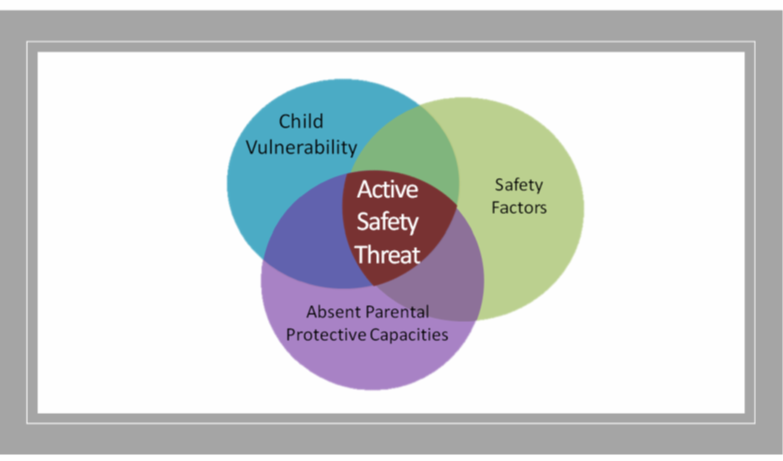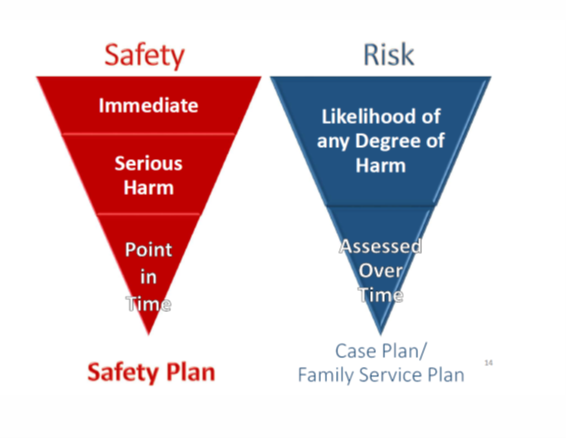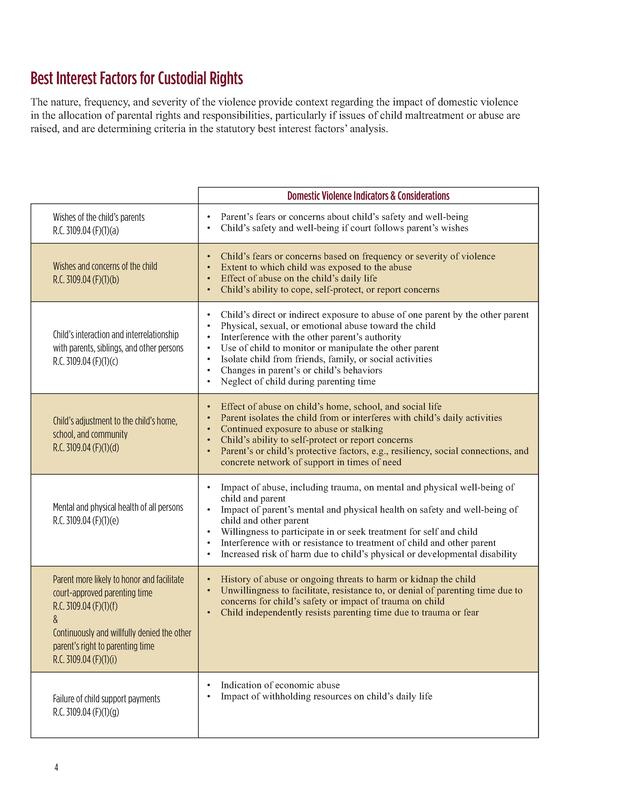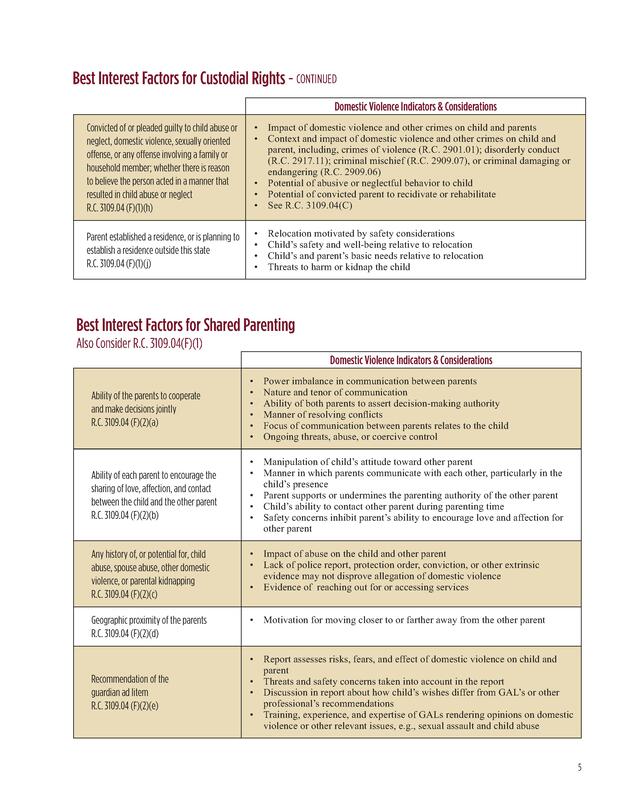|
Click to set custom HTML
0 Comments
JFS contacted you that they would like you to agree to a Safety Plan. What should I do? THERE ARE THREE TYPES OF SAFETY PLANS: Voluntary In-Home: This is implemented on the JFS 01409 CAPMIS Safety Plan. Voluntary Out-Of-Home: This is implemented on the JFS 01409 CAPMIS Safety Plan. Legally Authorized Out-Of-Home: This child is legally removed from the home and temporary custody is given to the PCSA or relative/kin. The JFS 01409 Safety Plan is not required to be completed. The court complaint and motions will provide the justification of how this safety response will immediately protect the child. Although not the intent, these safety plans could go on for years, with little third party oversite. The benefits of agreeing to a safety plan is to avoid JFS taking custody of the child/dren. This is a reasonable effort that JFS must attempt prior to filing for custody. However, for JFS to gain custody they would first need to prove that the child would be at risk of harm if JFS did not step in and take custody. If they can't meet the burden, than their motion will be denied. SHOULD YOU COOPERATE WITH JFS? It depends on the circumstances. If the allegation involves significant harm to your child yes. However, cooperation is voluntary, but they could argue that your failure to cooperate showed a lack of protective capacity. If you ask that JFS speak to you only with your attorney present, they will cease any further communication, but they could also choose to seek legal custody. If JFS has not taken legal action, they will not appoint you an attorney or a Guardian ad Litem for the child. A SAFETY PLAN IS VOLUNTARY You can discontinue the safety plan at any time. You may change placement providers or ask that the safety plan be terminated. The agency may or may not file for custody if the determine the risk still exists. WHAT TO EXPECT ON A SAFETY PLAN There will be certain rules in place, depending on whether the safety plan is an in or out of home plan. This may require supervision of persons with the children. They will ask you for names of persons who could be listed on the safety plan. More than one person may be named as safety plan providers. They may ask you to participate in assessments and follow those recommendations. This is part of a case plan. You should make sure you understand what is expected to terminate the safety plan. JFS cannot supervise visits, so if supervised visits are required, they will need to be conducted by the safety plan provider or other approved persons. SHOULD I BE A SAFETY PLAN PROVIDER? If you choose to be a safety plan provider, make sure you and the parents under stand the rules. Failure to comply with the safety plan could prevent you from continuing as a placement provider if JFS seeks custody.
Domestic Violence does not automatically foreclose a parent from visitation, custody or shared parenting. The Court must still assess what is in the best interest of a child weighing safety issues with the rights of parents and a child regarding the parent child relationship.
A parent making false allegations regarding domestic violence could also hinder a custody case, and could result in the loss of custody and/or visitation. When there is domestic violence, the Juvenile Court has limited resources regarding supervised visits, and rarely is supervised visitation or the termination of visitation a final order of the Court. In Hamilton County, the Court can refer a parent to the Children's Home for up to six visits of supervision. The Court will be provided notes of the visits and can use that as part of their basis of their decision regarding visits. The cost of is $200 an hour, but depending on the parents income, parents could qualify for a scholarship. Often when supervised visits is requested, the requesting parent will need to supervise or find a third party willing to do the supervision. This may not be viable long term option. However, the First District Court of Appeals recently ruled that in limited circumstances, the Court could terminate visitation. The Court stated that "a noncustodial parent’s right of visitation with his or her children is a natural right and should be denied only under extraordinary circumstances. Extraordinary circumstances include unfitness of the noncustodial parent or a showing that visitation with the child would cause harm. Guliano v. Guliano, 11th Dist. Trumbull No. 2010-T-0031, 2011-Ohio-6853, ¶ 54. “If there is clear and convincing evidence that visitation presents a significant risk of serious emotional or physical harm to the child, or a showing of some justification for preventing visitation, the court may deny visitation.” Linde v. Linde, 1st Dist. Hamilton No. C-940944, 1996 WL 97563, *5 (Mar. 6, 1996)." Crystal Baker v. Anthony Edwards C190686. When deciding custody and visitation issues when there is domestic violence, the Court will make a determination of what is in the best interest of the child. The Ohio Supreme Court has provided guidance on what the Court should be considering. Bringing your disputes before a mediator can offer several benefits for divorcing couples. In mediation, divorcing couples may resolve any issues they would otherwise litigate, including property division, shared parenting arrangements, parenting schedules and more.
Traditional Hallmarks of Mediation are: voluntary participation, self-determination, full disclosure, and informed decision-making. Lowering conflict levels Mediation takes place in a low-key setting where the mediator facilitates constructive discussion and keeps the focus on achieving resolution. This can help communication between soon-to-be exes who may feel overwhelmed with negative emotion. In contrast to courtroom litigation, which for many people tends to escalate the conflict level, mediation can help the parties compromise. Cost-effectiveness Another benefit is the relatively low cost of this process, especially compared to a full-scale courtroom battle. Some Courts offer mediation and may be eligible low-income parties may qualify for sliding fee or no-cost services. Agreement binding with court approval Once the parties reach an agreement, their attorneys review it and present it to the court. The agreement becomes binding once the judge approves it. After that point, a party wanting to change any provision will have to formally petition the court. At any point before court approval, the parties can choose to stop mediation and go back to court. Mediation when there is Domestic or Intimate Partner Violence (IPV) Usually there is a screening to identify IPV and whether mediation is appropriate. When IPV has occurred, a party might be unable or unwilling to adhere to ground rules, respect the needs and interests of the other party, fully disclose relevant information, explore options, share decision-making, and commit to honoring agreements. The decisions of the parties should be the product of their own separate deliberation and judgment. When IPV is an issue, one or both parties might be subject to undue pressure, duress, threats, manipulation, or intimidation. Learn more by speaking with your attorney Your attorney can and should advise you throughout the mediation process. The mediator may not provide legal advice, so you need your lawyer to discuss the potential ramifications of any decisions you contemplate. Domestic Violence and High Conflict Cases pose additional challenges for Courts when making a determination regarding custody and visitation.
The Courts do not favor one parent over another and Domestic Violence between parents does not necessarily foreclose a parent from obtaining custody or shared parenting. The Courts will be focused on the Best Interest of the Children, based on R.C. 3109.04, which will include addressing safety issues. The Ohio Supreme Court addressed these issues in Domestic Violence & Allocation of Parental Rights and Responsibilities. Even if the domestic violence only occurs between parents, children are negatively impacted. Witnessing domestic violence can lead children to develop an array of age-dependent negative effects. Research in this area has focused on the cognitive, behavioral, and emotional effects of domestic violence. Children who witness violence in the home and children who are abused may display many similar psychologic effects. These children are at greater risk for internalized behaviors such as anxiety and depression, and for externalized behaviors such as fighting, bullying, lying, or cheating. They also are more disobedient at home and at school, and are more likely to have social competence problems, such as poor school performance and difficulty in relationships with others. Child witnesses display inappropriate attitudes about violence as a means of resolving conflict and indicate a greater willingness to use violence themselves. The Courts recognize the importance of having both parents involved in their children’s upbringing, but it still must be found to be in the Children’s Best Interest. Traditionally, the Court would not grant Shared Parenting in High Conflict cases, but the trend has been to try and reduce the conflict between parents and not reduce parent involvement. In some cases, when parents seem unable or unwilling to co-parent, the Court will attempt to limit the parents contact to reduce conflict between the parents. In an effort to do that, one option has been to utilize parallel parenting. Parallel parenting is a technique in which divorced parents who wish to avoid contact do so by limiting their interactions. This solution works for high-conflict divorces, where parents may need some time to cool down before making amends or seeing and speaking to each other on a regular basis. This parenting style allows both parents to be involved in their child’s life without having to be involved in their ex-spouse’s life. Parallel parenting can be a way to let the dust settle before transitioning to a more interactive parenting style that allows for cooperation and communication. However, for some couples co-parenting isn’t and won’t ever be an option. Parallel Parenting can be effective utilizations supports such as:
|
Archives
February 2024
Categories
All
|

 RSS Feed
RSS Feed




